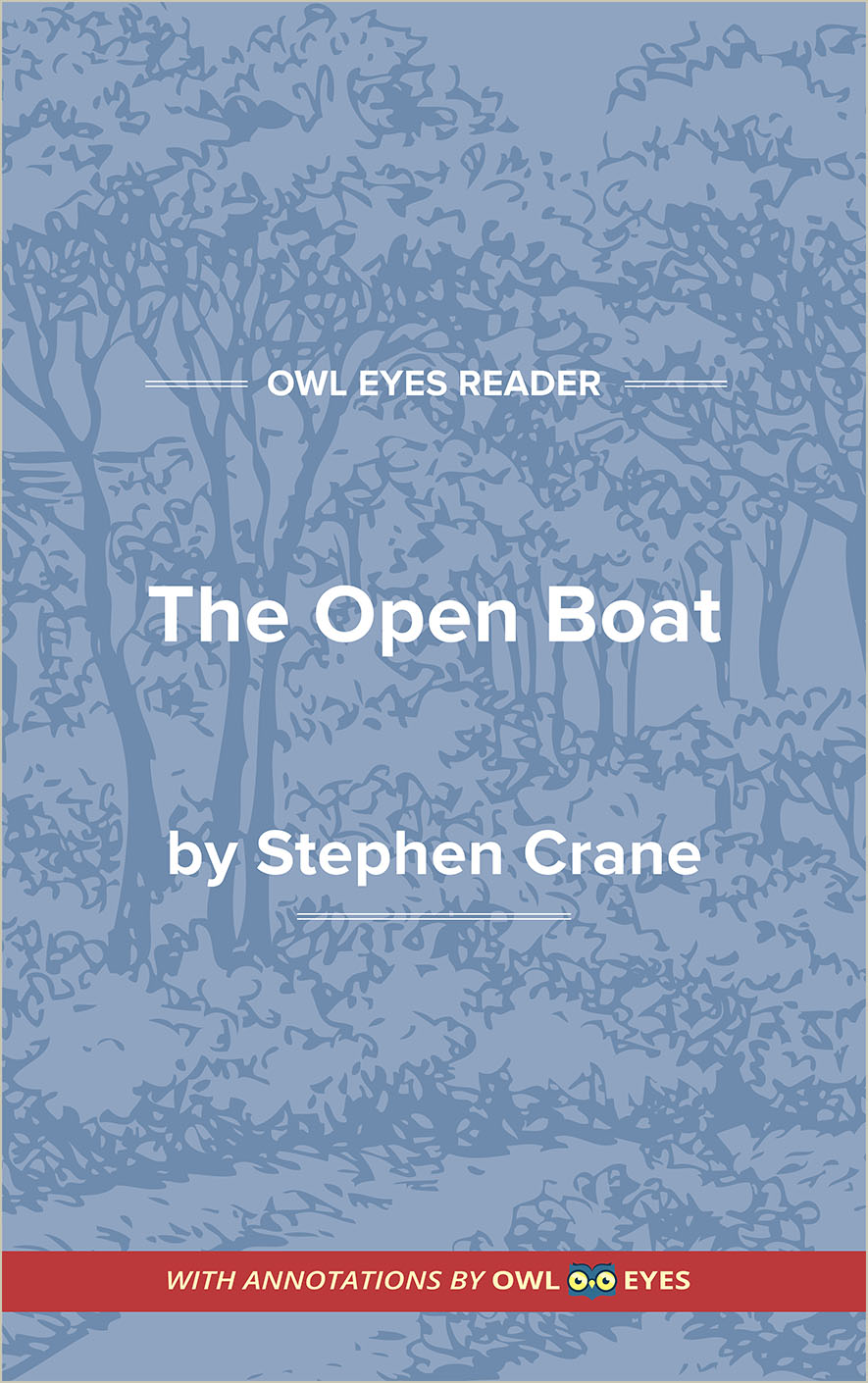Analysis Pages
Themes in The Open Boat
Themes Examples in The Open Boat:
The Open Boat
🔒"When it came night, the white waves paced to and fro in the moonlight, and the wind brought the sound of the great sea's voice to the men on shore, and they felt that they could then be interpreters. ..." See in text (The Open Boat)
"A large wave caught him and flung him with ease and supreme speed completely over the boat and far beyond it. It struck him even then as an event in gymnastics, and a true miracle of the sea...." See in text (The Open Boat)
"They passed on, nearer to shore—the oiler, the cook, the captain—and following them went the water-jar, bouncing gayly over the seas. ..." See in text (The Open Boat)
"It represented in a degree, to the correspondent, the serenity of nature amid the struggles of the individual—nature in the wind, and nature in the vision of men...." See in text (The Open Boat)
"A high cold star on a winter's night is the word he feels that she says to him. Thereafter he knows the pathos of his situation...." See in text (The Open Boat)
"Nevertheless, it is true that he did not wish to be alone with the thing. He wished one of his companions to awaken by chance and keep him company with it...." See in text (The Open Boat)

